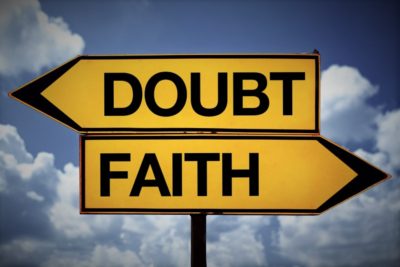Twenty-first Sunday in Ordinary Time
August 22, 2021 — Year B
Readings: Jos 24:1-2a, 15-17, 18b / Ps 34 / Eph 5:21-32 / Jn 6:60-69
by Rev. Nixon Negparanon, Pastor
How do we act when we hear a doctrine or a teaching that is difficult to understand and difficult to do? Why do we seem to choose what we want to understand? Why do our ears buy only what we want to hear? After Jesus spoke of His body and blood being given for people as food and drink, many of his disciples said, the very first of our gospel today, “This teaching is hard. Who will receive this?” Because of this, many of them stopped following Jesus.
There are some basic teachings of Jesus that are not easy to follow. For example, if someone slaps you on the right cheek, turn to him the other also. Forgive the man who sins against you seventy-seven times, meaning endlessly. Love your enemies. Sell your possessions and give to the poor. Is that easy? Very hard. How many of us refuse to follow Christ because of these teachings?
Today Jesus continues the work of teaching through his Church. Many people are enlightened and guided by the teachings preached by bishops, priests, deacons, religious, and teachers of the faith. However, we cannot hide that there are teachings of the Church that are not popular or are difficult for other people to accept, including those about artificial contraception, premarital sex, divorce, same-sex unions, and so on. So, the question is this: If we have difficulty understanding a Church teaching, what should we do?
Should we just take the doctrine and consider it outdated? Will we get angry and stop worshipping? Shall we change religions? Or do we try to understand the doctrine by studying and listening to the teaching of people with authority and great knowledge?
For a faithful member of the Church, the latter suggestion is best. Before we ignore or criticize a teaching, we must first try to understand it. We should read books and seek the opinions of respected people in the Church, such as priests and religious. By studying and listening to advice, a person is enlightened and able to do the right thing.
It is not wrong to doubt. It is fine to doubt, because it is a way to come to the truth. What we need is an open mind and a broader perspective ruled by God’s will. In moments that we are in doubt, when we find it hard to accept the teachings of God, that is the best time to express our faith in God and say, “Lord, Your will be done, here on earth as it is in heaven.”
In our gospel today, St. John tells us about an important moment in the lives of the apostles. Jesus said to those gathered around Him, “My flesh is real food and my blood is real drink.” These words surprised many of those who were gathered there. They thought that these words were hard to understand. Incomprehensible. They could not believe what they had heard. Their faith in Christ and what He said was not sufficiently strong. And some of them decided not to follow him anymore.
On the other hand, Peter and the other apostles knew the Lord better and had been with him longer. Their faith was greater. They probably did not understand what Jesus said, but in contrast to others who left, they stayed and decided to follow Him. And the Lord was pleased about this.
The Lord reads thoughts – in those times and today. That is why He knew that among His followers there were some who criticized Him and did not accept Him and what He said. He knew that many would leave Him when they heard these words. Jesus saw that the apostles also had doubts about what He had just said. He wanted to hear from their own lips what they were thinking. That’s why the Lord asked them, “Do you also want to leave me?”
Peter spontaneously, as always with faith and love in Christ said, “Lord, to whom shall we go? You have the words of eternal life.” With these words, Peter responded for himself and for the other apostles. And again, surely the Lord was pleased.
The apostles knew that if they left Christ, they would stop hearing His life-giving words. They had already come to know that Jesus was someone special, and they could not leave Him because, without Him, they would all be lost.
Many times we also have gone through moments of doubt and crisis in our lives and maybe in our faith. At these times, like the apostles, we ask, “To whom shall we go?” What should be clear in our minds is that Jesus is the only way to resolve our problems.
Let us remember that our Lord abides here in this church building in the Blessed Sacrament. He is waiting for us to ask for His help. Jesus always exhorts us, as He did His apostles, to follow Him and to believe in His teachings. When we ask for His help, we should have faith in Him, because if we do not, can He help us? And so let us remember the words of St. Peter, “Lord, to whom shall we go?”
 540-586-8988
540-586-8988 

